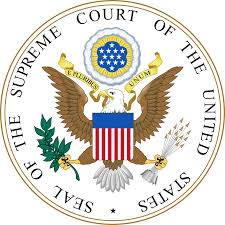
In this post, I’ll discuss temporary restraining orders or TROs, extremely short term, emergency temporary injunctions. Functionally, a TRO is designed to preserve the status quo until the court can adjudicate a request for a preliminary injunction (which in turn preserves the status quo until the court can determine whether to enter a permanent injunction). All injunctions are considered “extraordinary” relief, and TROs are particularly extraordinary.
Law Governing
Rule 65 is the federal rule that addresses injunctive relief, and Rule 65(b) specifically pertains to TROs. However, Rule 65 is really limited to the procedures for preliminary injunctions and TROs, and does not provide the substantive standards controlling whether a party is entitled to injunctive relief. The substantive law providing the right to injunctive relief is generally found in common law—often state common law. Thus, a motion for a TRO typically entails consideration of the procedures in Rule 65(b) and the substantive requirements in the applicable body of law.
Ex Parte Relief
On the procedural side, Rule 65 is chock full of procedural hurdles and protections, some of which pertain to all forms of injunctive relief and others which are specific to TROs. Starting with those specific to TROs, the most notable is the potential for the court to enter a TRO ex parte—without actual notice to the opposing party. Ex parte relief is reserved for extreme circumstances and the movant must support the need for ex parte relief with a written certification of “any efforts made to give notice and the reasons why it should not be required.” Failure to make such a certification automatically dooms a request for ex parte relief. See S&G Elite LLC v. ST Nat’l Franchising LLC, 2025 WL 449268 (D. Ariz. 2025).
Normally, a request for an ex parte TRO arises when the timing of the TRO is urgent. The plaintiff learns that the city is about to demolish a building she owns the following morning, she believes that the demolition would be improper and she has tried unsuccessfully to provide the city with notice of the TRO she seeks. Recognizing the irreparable harm that could result from delay, the court may preserve the status quo with a short-term ex parte TRO.
However, there is another less common, but still valid, basis for seeking an ex parte TRO. In all cases, ex parte relief turns on irreparable harm occurring in the absence of the ex parte proceeding. Instead of the typical situation where delay causes the irreparable harm, however, sometimes the very act of providing the notice causes the irreparable harm. Thus, intellectual property rights owners sometimes seek ex parte TROs freezing the accounts of online counterfeit sellers because the sellers can easily drain their accounts and hide their money if provided with notice. See Advance Mag. Publishers Inc. v. Partnerships & Unincorporated Associations Identified on Schedule A, 2025 WL 2502528, (S.D. Fla. 2025).
More recently, this type of ex parte TRO has become more common in cryptocurrency cases. When the plaintiff suspects theft of cryptocurrency, the plaintiff seeks an ex parte TRO freezing the defendant’s crypto wallet to prevent transfer of the assets. See, e.g., Bellis v. Kelly, 2025 WL 2552208 (D.N.J. 2025).
Because of the extraordinary nature of ex parte relief—effectively, if briefly, depriving the defendant of property or liberty without any notice—Rule 65 adds a number of procedural requirements and safeguards that kick in when the plaintiff seeks an ex parte TRO. Starting with the request for such relief, Rule 65(b)(1) requires that the movant: (1) show that immediate and irreparable harm will result to the movant before the opposing party can be heard; (2) certify in writing any efforts made to provide notice to the opposing party; and (3) provide the reasons why notice should not be required. Failure to comply with these requirements will likely lead to perfunctory denial of the request for an ex parte TRO. See S&G Elite LLC v. ST Nat’l Franchising LLC, 2025 WL 449268 (D. Ariz. 2025).
Content and Duration
If the court decides to issue an ex parte TRO, Rule 65(b)(2) contains provisions governing the TRO’s content and duration. It provides that an ex parte TRO “must state the date and hour it was issued; describe the injury and state why it is irreparable; state why the order was issued without notice; and be promptly filed in the clerk’s office and entered in the record.” It also limits the duration of an ex parte TRO to 14 days, with the ability, for good cause shown, to extend the duration for one additional 14-day period. In contrast, Rule 65 does not establish a time limit for a TRO issued following notice to the defendant.
Hearing
Rules 65(b)(3) and (4) add procedures following the entry of an ex parte TRO. Rule 65(b)(3) obligates the court to hold a hearing on the preliminary injunction “at the earliest possible time, taking precedence over all other matters” after the court enters an ex parte TRO. Rule 65(b)(4) authorizes the party subject to an ex parte TRO to appear and move to dissolve or modify the order upon two days’ notice to the party who obtained the ex parte TRO. See Hurlock v. Kelsier Ventures, 2025 WL 1917939 (S.D.N.Y. 2025).
Security
In addition to the provisions in Rule 65 that specifically apply in the context of an ex parte TRO, Rule 65(c) requires the party obtaining interlocutory injunctions of any nature—whether a preliminary injunction, TRO following notice, or ex parte TRO—to post security. The idea behind security is that the moving party—typically the plaintiff—is asking the court to grant relief restraining the opposing party—typically the defendant—before the court has made a final determination on the merits. If the court ultimately decides that the movant was not entitled to injunctive relief, the security is available to compensate the respondent for harm caused by the movant’s request for the interim restraint. While Rule 65(c) seems to require security, it authorizes the court to set an amount it “considers proper to pay the costs and damages sustained by any party found to have been wrongfully enjoined or restrained,” which can be zero. See Advance Mag. Publishers Inc. v. Partnerships & Unincorporated Associations Identified on Schedule A, 2025 WL 2502528, (S.D. Fla. 2025).
Advice
Requests for TROs impose significant burden on the courts, requiring immediate attention and significant oversight and court involvement. In order to obtain a TRO, therefore, take the “belt and suspenders” approach and come armed with as much evidence as you can muster to demonstrate the urgency of the relief and the dire nature of the irreparable harm that your client will suffer in the absence of the TRO.
******
Steve is one of the authors of The Federal Litigator, a monthly publication from Thomson Reuters that reports on cases of general interest to those who practice in the federal courts. Each fall, The Federal Litigator reports on amendments to the federal court rules. This article is an excerpt from the October 2025 edition of The Federal Litigator that is reprinted with the publisher’s permission (© 2025 Thomson Reuters). Further reproduction of any kind is strictly prohibited. For further information about this publication, please click here, or call 800.328.9352. Individual case summaries can be accessed through Westlaw. Steve is also one of the authors of the Federal Civil Rules Handbook, an annual publication from Thomson Reuters containing detailed, practical commentary providing a blueprint for the application of the Federal Rules of Civil Procedure and related jurisprudential concepts. To purchase the Handbook, please click here.


